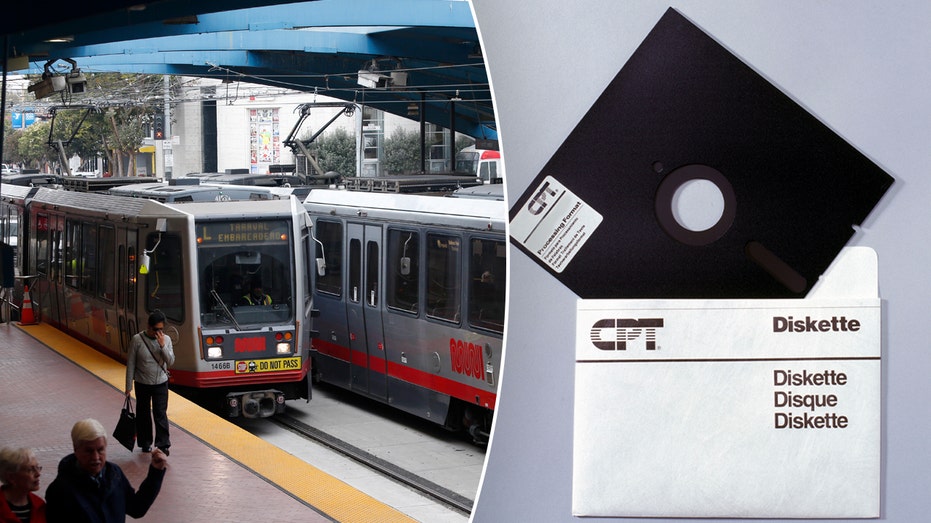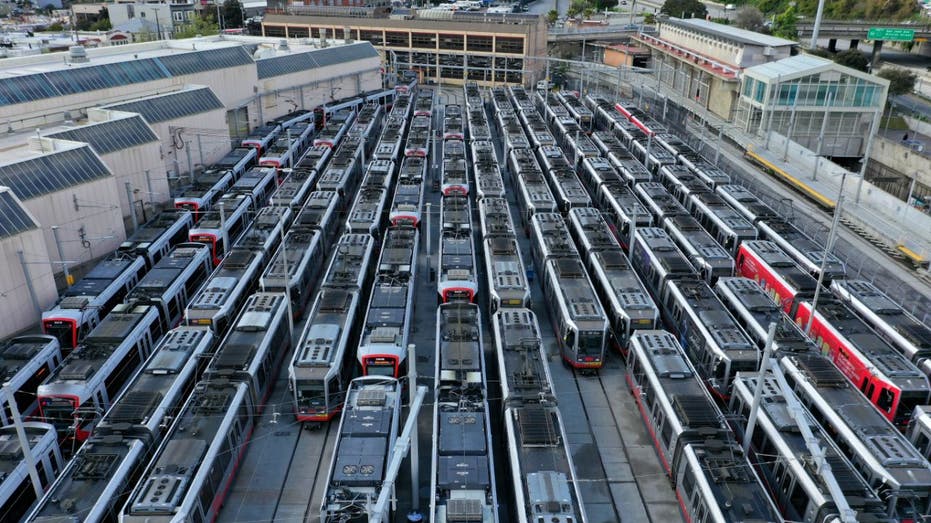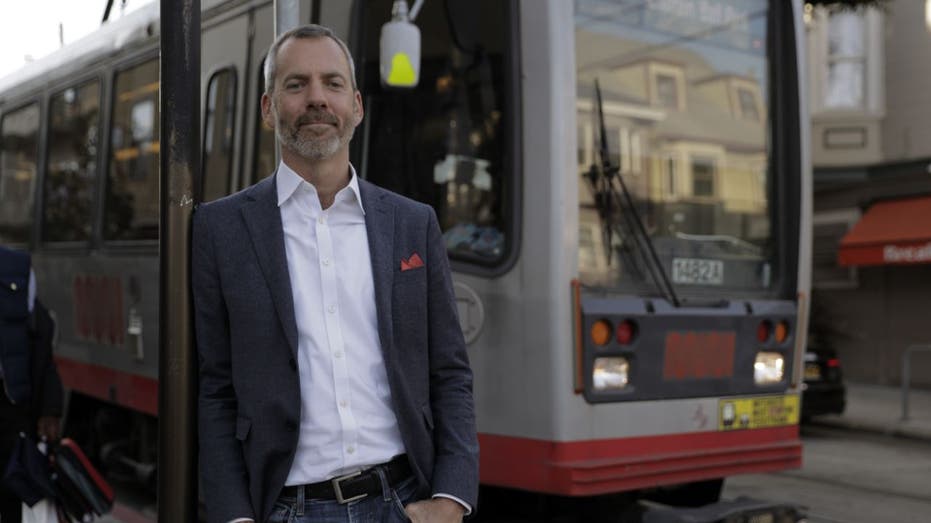Some San Francisco trains using '80s-era floppy disks for operations
The San Francisco Municipal Transportation Agency says it will take a decade and hundreds of millions of dollars to upgrade the system
San Francisco is an example of how to become a ‘rat hole’ over 10 years: Kevin O’Leary
O'Leary Ventures chairman Kevin O'Leary reacts to California Senate candidates’ efforts to raise the minimum wage to as high as $50 on ‘Varney & Co.’
San Francisco may be in Silicon Valley, but part of its rail system is still running on technology that hasn't been on the cutting edge since the Reagan administration.
Officials from the San Francisco Municipal Transportation Agency (SFMTA) told KGO-TV in a recent interview that 5.25-inch floppy disks are still used to operate the city's train control system.

San Francisco Muni Metro light rail and a 5.25-inch floppy disk. (Getty / Getty Images)
SFMTA, which operates San Francisco's Muni Metro light rail system, has been using floppy disks to run the trains since 1998.
SAN FRANCISCO FECES CALLS RISING DRAMATICALLY DESPITE MILLIONS SPENT ON PUBLIC TOILETS: REPORT
"We were the first agency in the U.S. to adopt this particular technology, but it was from an era that computers didn't have a hard drive, so you have to load the software from floppy disks on to the computer," Mariana Maguire of the SFMTA Train Control Project told KGO.

San Francisco MUNI Metro trains sit parked at the Curtis E. Green Light Rail Center in San Francisco on March 30, 2020. (Justin Sullivan/Getty Images / Getty Images)
The outlet reported the system was built to last up to 25 years, and now that it is a year past, officials fear it could break down.
"The system is currently working just fine, but we know that with each increasing year, the risk of data degradation on the floppy disks increases and that at some point there will be a catastrophic failure," SFMTA Director Jeffrey Tumlin said in the interview.

San Francisco Municipal Transportation Agency director Jeffrey Tumlin is seen in San Francisco on Nov. 12, 2019. (Carlos Avila Gonzalez/The San Francisco Chronicle via Getty Images / Getty Images)
However, he explained, upgrading the system would take a decade and cost hundreds of millions of dollars.
GET FOX BUSINESS ON THE GO BY CLICKING HERE
"We are hoping that a large component of this will come from state and federal grants," Tumlin told KGO. "The rest of it will come from Muni's rapidly declining internal capital resources."





















